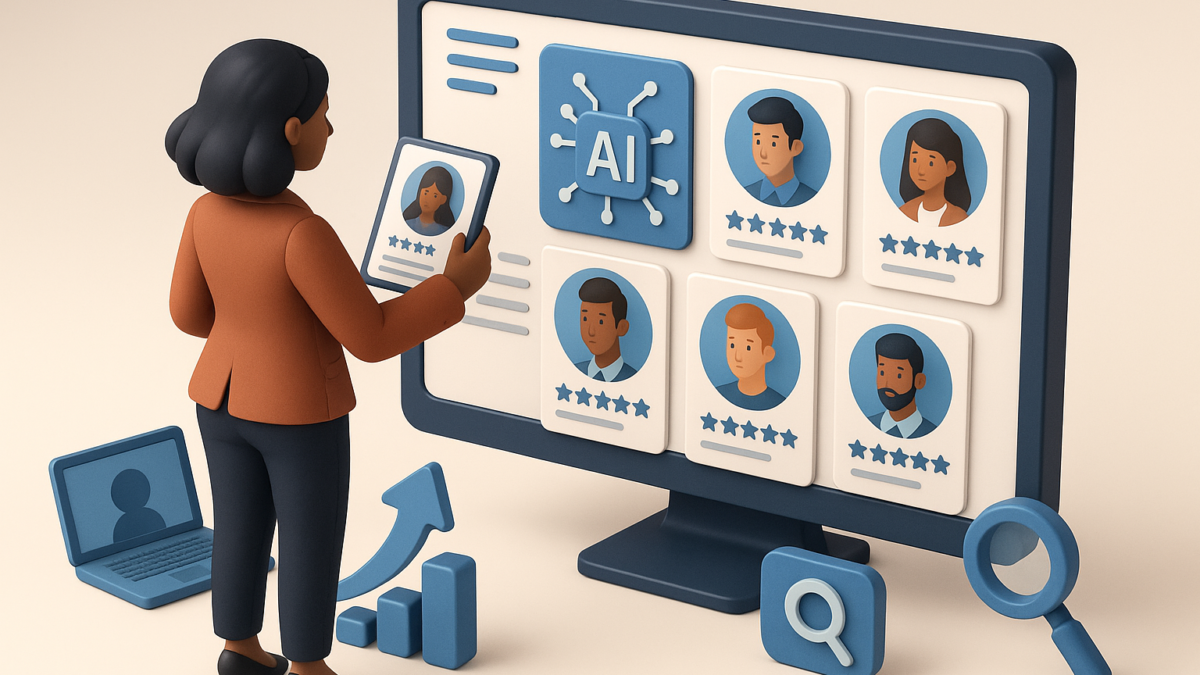The Rise of Predictive Content: How AI Forecasts What Your B2B Audience Wants Next
Table of Contents
In 2025, B2B marketers can no longer rely on guesswork. The days of creating content based solely on past performance are fading fast. Today, AI is revolutionizing how brands predict what their audience wants before they even ask — ushering in the age of predictive content marketing.
Predictive content uses AI-driven insights, behavioral analytics, and real-time data to forecast what topics, formats, and messages will resonate with prospects. This proactive approach allows marketers to deliver the right content to the right audience — at exactly the right time.
What Is Predictive Content Marketing?
Predictive content marketing combines data science and automation to anticipate buyer behavior. Instead of reacting to analytics after a campaign ends, predictive models analyze:
- Past engagement patterns (clicks, downloads, or dwell time)
- Buyer intent signals from CRM and social platforms
- Search trends and competitor activity
- Historical content performance
AI then uses this data to recommend or even automatically generate future content likely to attract engagement and conversions.
For example, a B2B software company might discover that prospects researching “AI automation in logistics” are also about to explore “predictive supply chain analytics.” With predictive content tools, marketers can prepare relevant blogs, whitepapers, or case studies before those queries peak — staying ahead of demand.
How AI Forecasts Audience Needs
1. Intent Data Analysis
AI tools monitor behavioral patterns — such as the keywords prospects search, the pages they visit, and the topics they interact with. This creates a predictive map of future interests.
2. Machine Learning Models
Machine learning continuously refines predictions based on real-time engagement. Over time, it learns what kind of content converts best for each audience segment.
3. Dynamic Personalization
AI platforms can adapt website or email content dynamically based on user profiles. For example, a repeat visitor might see more advanced insights, while a first-time reader sees introductory content.
4. Predictive Lead Scoring
AI doesn’t just guess — it prioritizes. Predictive scoring ranks leads by their likelihood to convert, ensuring marketing teams focus efforts where ROI is highest.
Benefits of Predictive Content for B2B Marketers
- Hyper-Personalized Experiences: Each user gets content tailored to their intent and stage in the buyer journey.
- Higher Conversion Rates: Predictive recommendations ensure users engage with more relevant material.
- Reduced Wasted Effort: Marketing teams spend less time creating guess-based content that doesn’t perform.
- Faster Sales Cycles: AI helps move prospects smoothly from awareness to decision by serving exactly what they need next.
Real-World Example: Predictive Content in Action
A leading B2B SaaS company used AI analytics to predict trending keywords within its industry. By creating whitepapers and blogs around those future topics — before competitors did — they saw:
- A 47% increase in organic traffic within 60 days
- A 30% boost in lead form submissions
- And a significant drop in cost-per-lead (CPL)
Predictive insights allowed them to stay ahead of audience behavior rather than follow it.
The Future of Predictive Content
As AI models continue to evolve, predictive content will move beyond topic forecasting to automated content generation and distribution. Imagine AI not only identifying what to write about — but also producing, publishing, and promoting it across the right B2B channels in real time.
Companies that adopt predictive marketing early will have a distinct competitive advantage: they’ll anticipate buyer needs before competitors even identify them.
Conclusion: The Predictive Advantage
Predictive content is reshaping the future of B2B marketing. It empowers businesses to go from reactive publishing to proactive engagement — ensuring every blog, email, or whitepaper lands with precision.
In 2025, the brands that succeed won’t just react to data; they’ll predict it, personalize it, and perform with purpose.
Turn Your Content into Qualified B2B Leads — Start Syndicating Today!





